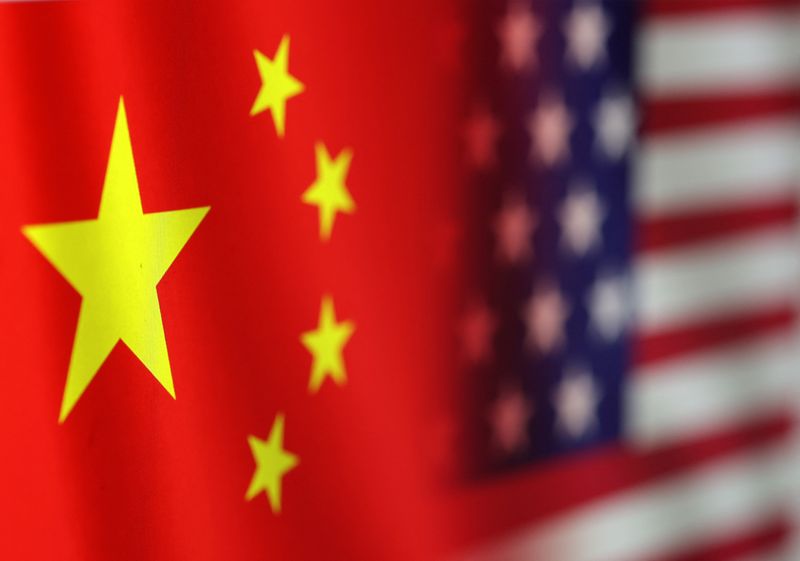By David Lawder
WASHINGTON (Reuters) - The U.S. may need to take further and "more creative" actions beyond tariffs to protect U.S. industries and workers against China's growing excess industrial capacity, the U.S. Treasury's top economic diplomat said on Wednesday.
Jay Shambaugh, Treasury Undersecretary for International Affairs, told a Council on Foreign Relations event that China's production has become "untethered" from its own demand or demand in the global economy, unleashing exports that threaten jobs in the U.S. and other countries.
He said the traditional trade defense toolkit, including the "Section 301" tariffs that President Joe Biden recently increased, may not be sufficient to deal with such challenges.
"More creative approaches may be necessary to mitigate the impacts of China’s overcapacity," Shambaugh said. "We should be clear: defense against overcapacity or dumping is not protectionist or anti-trade, it is an attempt to safeguard firms and workers from distortions in another economy."
Shambaugh did not elaborate on further steps that may be necessary or under consideration by the Biden administration.
NEW TRADE REMEDIES
A group of bipartisan lawmakers and steel producers earlier on Wednesday called on Congress to pass new legislation that would apply U.S. anti-dumping and anti-subsidy duties on Chinese goods to those produced by Chinese companies in third countries.
The "Leveling the Playing Field 2.0" bill sponsored by Representative Terri Sewell, a Democrat and Representative Bill Johnson, a Republican, also would allow China's "Belt and Road" subsidies for projects in other countries to be counted in anti-subsidy cases.
The Biden administration also on Wednesday unveiled a new effort with Mexico to combat China's circumvention of U.S. steel and aluminum tariffs, instituting a new North American "melted and poured" standard for steel imported into the U.S. from Mexico.
Shambaugh's remarks amplified concerns voiced by U.S. Treasury Secretary Janet Yellen on a trip to China in April, when she warned that Beijing's overinvestment and excess production capacity in key industries was unacceptable. The trip foreshadowed Biden's steep tariff hikes on an array of Chinese goods, including electric vehicles, solar panels, semiconductors and critical minerals.
He defined China's overcapacity as "production capacity in excess of domestic demand and untethered from global demand," stemming from persistent overinvestment that is facilitated by extensive state support.
China's production capacity in some industries far exceeds global demand projections, including for solar panels, lithium-ion batteries and electric vehicles, he said, adding that China's factory utilization rates were falling, while the share of money-losing firms was rising, reaching 28% of publicly traded Chinese automakers.
"These conditions would not appear in a normal, market economy. What we are seeing is a fundamental distortion, driven by government policy," Shambaugh said.

It would be better for China to work with other countries to address their concerns and rein in excess capacity to boost efficiency and productivity, expand its social safety net and boost domestic demand efficiency.
"We will take defensive action if needed, but we would prefer for China to take action itself to address the macroeconomic and structural forces that are generating the potential for a second 'China shock' for its major trading partners," Shambaugh said.